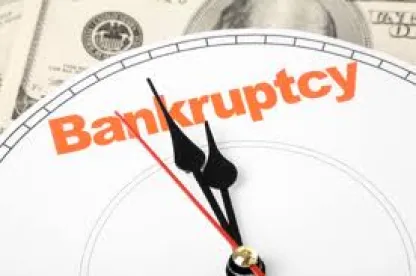The recent advisory discusses a recent Third Circuit Court of Appeals ruling that held a “make-whole” optional redemption premium to be due upon a refinancing of corporate debt following its automatic acceleration upon bankruptcy. As noted in the linked advisory, the Second Circuit Court of Appeals also is considering this issue; whether it will come to the same conclusion remains to be seen. One way or another, these decisions will have spillover effect on judicial interpretation of optional redemption provisions in municipal bond transactions, and shine a spotlight upon the discrepancies between optional redemption provisions and other early payment provisions in most municipal bond indentures.
The Third Circuit case involved a debtor, Energy Future Holdings, that filed for bankruptcy for the explicit purpose of refinancing the debt at favorable interest rates while avoiding the hefty make-whole premiums payable upon an optional redemption of the refinanced notes. The bankruptcy court and the federal district court found nothing in the applicable corporate indenture requiring payment of a make-whole following an acceleration. The Third Circuit reversed, interpreting the applicable corporate indenture’s “optional redemption” provisions to be applicable to the bankruptcy-triggered acceleration followed by repayment of the accelerated debt via a refinancing.
The Third Circuit’s ruling that the repayment following acceleration was an “optional redemption” may have been driven by the factual context of what could be characterized as an “optional bankruptcy” filed solely or primarily to jettison the make-whole payments and lock in lower rate replacement financing. The indenture’s acceleration provision was, as is usual, a remedial provision entirely separate from the indenture’s optional redemption provisions, and, as is typical but not universal, did not specify a premium to be due upon payment of the accelerated debt. Although once the accelerated payment was due there was nothing “optional” about paying it, the appellate panel opined that the payment on the applicable date was “optional” because the issuer chose to file for bankruptcy and chose not to deaccelerate the debt after the bankruptcy triggered the automatic acceleration. The fact that the bondholders objected to repayment without a make-whole premium also seems to have factored into the court’s determination that the payment by the issuer was “optional.”
The federal appellate court also concluded that under New York law a “redemption” may occur at or before maturity of bonds, and that therefore a “redemption” is not synonymous with a prepayment. (Indeed, the court suggested that if the make-whole premium had been labeled a “prepayment” premium rather than an “optional redemption” premium, it may have held the make-whole inapplicable, a curious distinction that leads back to the question of under what circumstances payment of an amount that has become due can be deemed optional.) The court disregarded indenture provisions that were technically inconsistent with its determination that the payment was an “optional redemption”, such as the optional redemption requirement of prior notice from the issuer to the bondholders. According to the court: “[The issuer] offers no reason why it could not have complied with [the redemption] notice procedures. In any event, it cannot use its own failure to notify to absolve its duty to pay the make-whole.”
By interpreting the indenture’s optional redemption provisions as applicable to the payment of the accelerated debt, the Third Circuit panel mooted and declined to address the noteholders’ alternate argument that the bankruptcy court should have granted relief from the bankruptcy stay to permit the bondholders to deaccelerate the accelerated debt. Whether that would have provided a more straightforward means of getting to the same result is debatable, as debt generally is deemed accelerated upon a bankruptcy whether or not it is contractually accelerated by the terms of the indenture.
The optional redemption provisions that are typical in municipal bond indentures refute the equivalence found by the Third Circuit between an optional redemption and a payment after acceleration. In contrast to the permissibility in corporate transactions of optional redemption at any time at a make-whole premium, the norm in municipal bond transactions is a lockout period (often 10 years) during which optional redemption is impermissible, followed by a declining fixed optional redemption premium. The fact that municipal indentures permit acceleration whenever there is an event of default, including upon bankruptcy, while imposing a lockout period for optional redemption, suggests that in the municipal bond context there may be less receptiveness by courts to the notion of deemed equivalence between an optional redemption and a payment following acceleration. Accordingly, a court may be less likely to deem an optional redemption premium applicable to a post-acceleration payment on a municipal bond absent express language requiring a premium in a post-acceleration context.
Whether corporate or municipal bonds are at issue, the best way to ensure the intended result is to draft clearly and specifically. Municipal bond indentures often permit or require bonds to be paid ahead of schedule not only upon acceleration but upon a so-called extraordinary redemption. These provisions, which typically permit payment ahead of schedule at par, are infrequently deployed relative to optional redemption provisions. Use of bankruptcy as a means of avoiding a prepayment premium is less likely in the municipal context, where the prepayment premium is typically 3% or less versus the often substantially larger make-whole premium, but “default refundings” of municipal bonds have been attempted to circumvent the optional redemption lockout period. There is no difference in the economic impact to a bondholder of early payment, no matter the degree of optionality or lack of optionality from the issuer’s perspective, and whether an early payment premium is expressly provided by the indenture in cases other than “optional redemption” is primarily a risk allocation question.
Drafting acceleration provisions and/or extraordinary redemption provisions in a manner that applies an equivalent premium to the optional redemption premium upon their exercise during the post-lockout period, and a make-whole or other premium during the optional redemption lockout period, provides better protection against any perceived risk of abuse of those provisions than reliance on the courts to figure out what the parties intended and/or is equitable in borderline scenarios.




 />i
/>i

